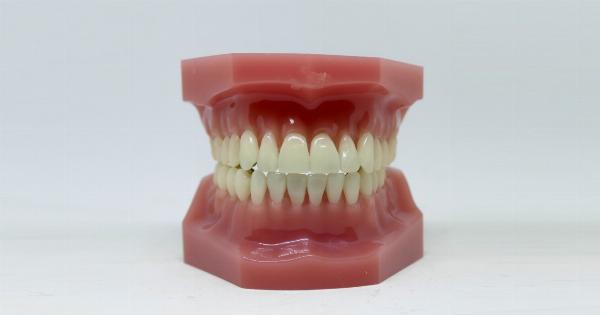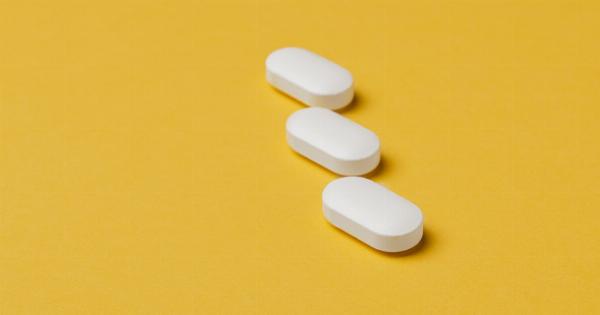Having a bright, white smile can boost your confidence and improve your overall appearance. However, many people are hesitant to use chemical-based teeth whitening products due to the potential risks and side effects.
Fortunately, there are several natural and effective ways to whiten teeth without chemicals. Here are 10 of them:.
1. Oil Pulling
Oil pulling is an ancient Ayurvedic remedy for oral health that involves swishing a tablespoon of oil (such as coconut oil or sesame oil) in your mouth for 20-30 minutes.
The oil helps to remove bacteria and toxins from your mouth, which can lead to whiter teeth and fresher breath.
2. Baking Soda
Baking soda is a natural whitening agent that can remove surface stains from teeth. You can mix a small amount of baking soda with water to make a paste, then brush your teeth with it once or twice a week.
However, be careful not to use baking soda too frequently, as it can be abrasive and damage your enamel.
3. Activated Charcoal
Activated charcoal is another natural whitening agent that can absorb surface stains from teeth. You can brush your teeth with activated charcoal powder once a week or use a charcoal toothpaste.
However, be aware that charcoal can be messy and stain clothing or surfaces.
4. Hydrogen Peroxide
Hydrogen peroxide is a natural bleaching agent that can whiten teeth without damaging enamel. You can use a hydrogen peroxide mouthwash or mix equal parts hydrogen peroxide and water to make a whitening solution.
However, be careful not to swallow the solution and rinse your mouth thoroughly afterward.
5. Apple Cider Vinegar
Apple cider vinegar can help to remove surface stains from teeth and kill bacteria in your mouth. You can dilute apple cider vinegar with water and swish it in your mouth for a few minutes, then rinse thoroughly with water.
However, be aware that vinegar is acidic and can erode your enamel if used too frequently or in high concentrations.
6. Fruits and Vegetables
Fruits and vegetables that are high in fiber (such as apples, carrots, and celery) can help to scrub your teeth and remove surface stains. They also increase saliva production, which helps to neutralize acids in your mouth and prevent tooth decay.
7. Dairy Products
Dairy products (such as cheese and yogurt) are high in calcium and phosphates, which can help to strengthen your enamel and prevent tooth decay. They also increase saliva production, which helps to neutralize acids in your mouth and prevent bad breath.
8. Brushing and Flossing
Regular brushing and flossing can help to remove surface stains from teeth and improve oral hygiene. Be sure to brush twice a day for two minutes each time and floss at least once a day to remove plaque and food particles from between your teeth.
9. Avoiding Staining Foods and Beverages
Some foods and beverages (such as coffee, tea, red wine, and tomato sauce) can stain your teeth and cause discoloration over time. Try to limit your intake of these items or rinse your mouth with water after consuming them.
10. Professional Teeth Whitening
If you are looking for a faster or more dramatic whitening result, you may want to consider professional teeth whitening. This involves using a stronger bleaching agent under the supervision of a dentist.
However, be aware that professional whitening can be expensive and may cause sensitivity or gum irritation.




























